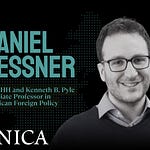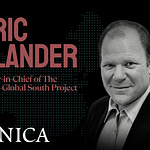The Swiss mining giant Glencore is reportedly talking with prospective buyers for its 75% stake in the Kamoto Copper Company (KCC) in the Democratic Republic of the Congo, one of the company's flagship assets that is also one of the world's largest producers of cobalt.
The blue metal is widely used in the manufacture of electric vehicle batteries and other sophisticated electronics, and is regarded as one of the key materials at the center of an escalating competition among the world's major industrial powers for control of critical resources.
The KCC mine was supposed to be a major driver of Glencore's revenue but the mine has consistently failed to meet investor expectations due to various operational setbacks, a plunge in cobalt prices, and a bitter royalty dispute with the Congolese government.
The mine's poor performance contributed to lower-than-expected first-half revenue in 2025 that resulted in a $655 million net loss.
Glencore has not provided any reason for its decision to sell KCC, but its ongoing financial difficulties are likely a factor.
The Geopolitical Ramifications of a KCC Sale
THE CHINA QUESTION: Chinese companies already control an estimated 80% of the Congolese cobalt market, a point of contention for the U.S. that is no doubt pressuring the DRC government to ensure KCC is not sold to a Chinese entity.
THE RISK FACTOR: In an ideal scenario for the Trump administration (and Europe & Japan as well), a U.S. firm would step up to buy KCC, securing a large supply of cobalt outside of the Chinese supply chain. The problem is that U.S. mining companies have not demonstrated the kind of risk tolerance for a deal this size. U.S. mining firms, such as Kobold, are cautiously entering the DRC cobalt mining sector, but they are relatively small in size compared to Chinese mining giants like CMOC Group, CNMC, Zijin, and Zhejiang Huayou Cobalt. The scale of U.S. investments in this area has been in the low millions of dollars, while Chinese acquisitions have been in the billions.
COBALT DEMAND: Chinese firms may not even want to make a play for KCC, given that demand for cobalt today isn't what it was a few years ago. Some 40% of EVs now use cobalt-free lithium-phosphate (LFP) batteries, and demand for EVs in the U.S., in particular, is down considerably in response to Trump administration policies. Additionally, Chinese companies, such as CMOC Group's Tenkey Fungurume Mine in the DRC, continue to produce substantial quantities of cobalt, providing more than enough supply for both current use and strategic reserve stockpiling.
U.S. "FRIENDSHORING": Even if a U.S. firm doesn't buy KCC, the U.S. may still be satisfied if a company from a purportedly friendly country like Australia, Saudi Arabia, or the Emirates acquires the mine. This so-called "friendshoring" option is the most likely outcome, but one that could potentially disappoint the Trump administration in the long run. Two factors to consider: CGSP data confirms that companies from all of Washington's supposed "friends" have no problem working with Chinese companies in the DRC mining sector. Secondly, pulling the cobalt out of the ground doesn't solve the larger problem of processing the metal that none of the U.S. "friends" does at anywhere near the scale the Chinese do.
WHY IS THIS IMPORTANT? Donald Trump may take particular interest in this issue given that he has claimed credit for brokering a peace settlement between the DRC and Rwanda to resolve their years-long war in the eastern Congo. And last week, we learned that the U.S. International Development Finance Corporation (DFC) is in talks with investment firm Orion Resource Partners to set up a $5 billion fund to invest in critical mineral projects.
Those two stories could very well intersect in a deal for KCC. Additionally, Trump is not afraid to use government funds to support private sector companies, as was the case with Washington's 10% stake in Intel. It's possible, although improbable, that the U.S. could bolster a private sector takeover of KCC with a sizable equity investment.











